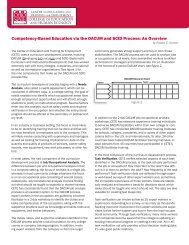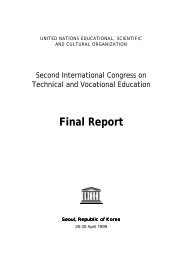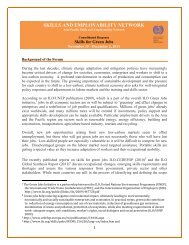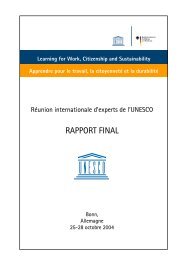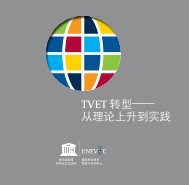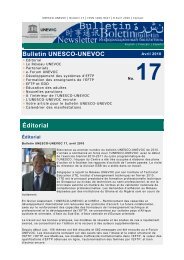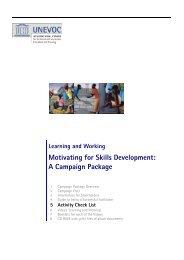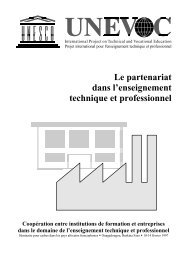FACTORS AFFECTING THE PERFORMANCE OF WOMEN ENTREPRENEURS IN MICRO ...
FACTORS AFFECTING THE PERFORMANCE OF WOMEN ENTREPRENEURS IN MICRO ...
FACTORS AFFECTING THE PERFORMANCE OF WOMEN ENTREPRENEURS IN MICRO ...
You also want an ePaper? Increase the reach of your titles
YUMPU automatically turns print PDFs into web optimized ePapers that Google loves.
in building capacity of women and providing them with equal opportunities (UNECE,<br />
2004).<br />
D. Access to networks<br />
Women have fewer business contacts, less knowledge of how to deal with the<br />
governmental bureaucracy and less bargaining power, all of which further limit their<br />
growth. Since most women entrepreneurs operate on a small scale, and are generally not<br />
members of professional organizations or part of other networks, they often find it<br />
difficult to access information. Most existing networks are male dominated and<br />
sometimes not particularly welcoming to women but prefer to be exclusive. Even when a<br />
woman does venture into these networks, her task is often difficult because most network<br />
activities take place after regular working hours. There are hardly any women-only or<br />
women-majority networks where a woman could enter, gain confidence and move<br />
further. Lack of networks also deprives women of awareness and exposure to good role<br />
models. Few women are invited to join trade missions or delegations, due to the<br />
combined invisibility of women-dominated sectors or sub sectors and of women as<br />
individuals within any given sector (Mahbub, 2000).<br />
E. Access to policymakers<br />
Most women have little access to policymakers or representation on policymaking<br />
bodies. Large companies and men can more easily influence policy and have access to<br />
policymakers, who are seen more as their peers. Women tend not to belong to, and even<br />
less reach leadership positions in, mainstream business organizations, limiting their input<br />
into policymaking through lobbying. Women’s lack of access to information also limits<br />
their knowledgeable input into policymaking (UNECE, 2004).<br />
Robertson (1998), OECD (2002), ILO (2008) added that the key factors that affect<br />
women entrepreneurs’ performance especially in developing continents like Africa are:<br />
vulnerability of women to adverse effects of trade reform; restraints with regard to assets<br />
(land); lack of information to exploit opportunities; and Poor mobilization of women<br />
entrepreneurs; lack of management skills; lack of awareness among young women of<br />
19



